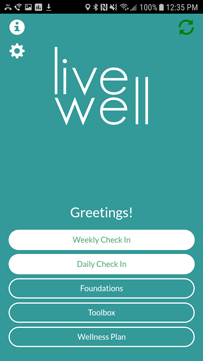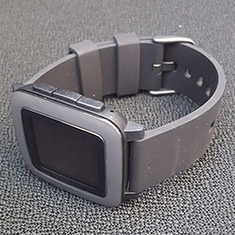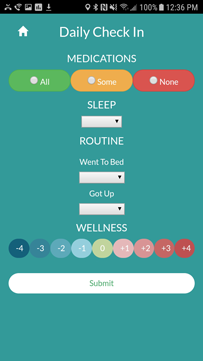As an organization, HealthPartners offers many different resources for mental health help in our community beyond our clinicians. You may know about our therapy dogs, HeroCare for veterans, music therapy programs and the Make It OK campaign. Yet there are many other resources we offer that are less visible – like the work done at HealthPartners Institute.
It is here that we focus on improving health and well-being through research, education and practice. We work behind the scenes to study and improve care for patients and families – including people with mental health needs. By trade, I am a psychiatrist. And as a senior investigator at the Institute, I use my expertise to study and research a wide range of mental illnesses as well as treatment options for them.
What HealthPartners Institute is doing to improve mental health care and treatment
 The LiveWell app
The LiveWell app
Right now we are exploring the use of smartphone apps for mental health needs. Many people already use mobile devices to help them be more active, improve sleep and address other health issues. Plus there are apps that track one’s mood and help with mind relaxation. But can well-being apps improve the lives of people living with mental health issues? And if so, how?
That’s what we’re looking into at the Institute.
Since early 2017, we have been doing research on an app called LiveWell, which was developed by Northwestern University. We’ve also been testing a watch that’s a sleep tracking device. We’re trying to find out if these technologies can help people with bipolar disorder predict and prevent the start of mood symptoms.
How HealthPartners Institute is researching mental health apps
Our study will last a total of 3 years and relies on the participation of volunteers.
All of our volunteers can choose to use a study smartphone during the study, and all get a Pebble watch. The Pebble watch is a wearable device that helps people track their sleep and their level of activity. Sleep is important for everyone’s health. But sleep is even more important for people with bipolar disorder. We know that sleep troubles can be a trigger for mania or depression. So can this watch identify those troubles early enough to help a person prevent those symptoms from happening? That’s what we aim to find out.
 The Pebble watch helps people track their sleep and level of activity.
The Pebble watch helps people track their sleep and level of activity.
In addition to the watch, two-thirds of our volunteers get the LiveWell app installed on the smartphone. This app is designed to track mood and functioning. So we want to know how well it helps people predict when they are starting to have depression or mania. Will those using the app be more successful than those using only the watch?
There is also a health coach who is an important part of our study. She helps volunteers learn how to use the Pebble watch and LiveWell app. And she is there to reach out to people who may be starting to have mood symptoms and help them get connected with their care teams.
What we are learning about mental health apps and how they might help people living with bipolar disorder
 The LiveWell app is designed to track mood and functioning.
The LiveWell app is designed to track mood and functioning.
So far, our volunteers like using the app. They like that it boosts their ability to track their mood and everyday life. And they like that it’s on a smartphone that many already use daily. In fact, 77 percent of all Americans own smartphones. So there’s promise that an app like this could be a free and useful tool for most.
The episodes of depression or mania that come with bipolar disorder can be debilitating. They can affect a person’s family, work and functioning a lot. But by helping spot symptoms early, this app could help someone avoid these full-scale episodes. There’s also the possibility that the app may help someone’s care team treat them. Since it tracks and records their moods and symptoms, the app could provide extra data and insight that could lead to even more informed treatment decisions.
What’s still to come with this study
Our study will keep going through 2019. And right now we are still recruiting volunteers to take part in it.
Then, once complete, we will have a much better grasp on just how useful the LiveWell app and the Pebble watch are.
With nearly 5.7 million people in the United States living with bipolar disorder, there is a need for an accessible resource that works. We believe these tools have great potential. And we are hopeful with the results we have seen thus far. But it is only when we study the app and the watch in a systematic way that we truly understand if they may be helpful.
The lifestyle changes that these tools may be able to prompt (like bettered sleep) can improve the symptoms of bipolar disorder. And medications can help ease them, too. But it’s important to note that mental illness stigma is still a problem. And as long as that’s the case, some people will avoid seeking the care they need. That’s why we are working to stomp out stigma with our Make It OK campaign. Do your part and sign the pledge today. Together, we can all Make It OK.